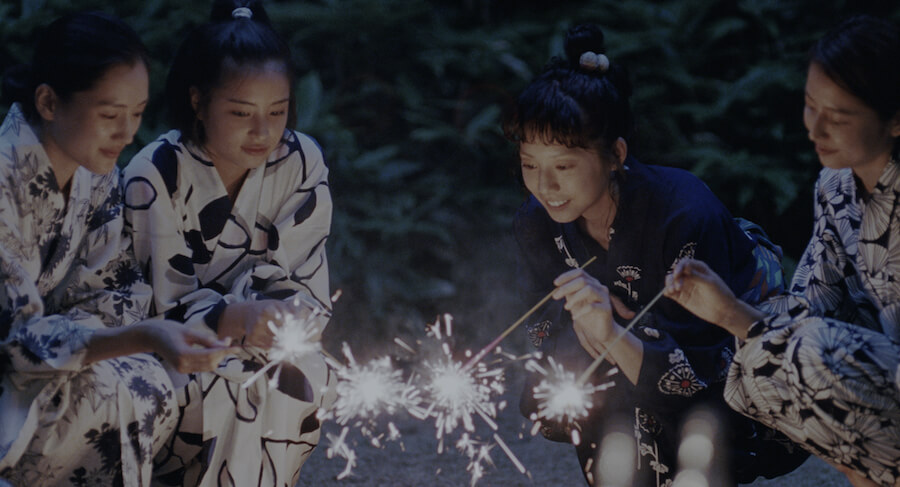“Our Little Sister” The nicest movie in theaters right now is “Our Little Sister.” That’s not to say it’s not sad or dark or that its characters can’t be prickly and neurotic. But the latest from esteemed Japanese auteur Hirokazu Kore-eda (“After Life,” “Nobody Knows”) understands more than most films that happiness doesn’t mean an absence of pain. His four protagonists — sisters who hole up in the same seaside village home — have spent a lifetime dealing with errant parents. They worry about love and careers and each other. There are three separate funerals, each one arriving with no warning, and death looms over all. And yet the film is never less than serene and lovely. When we meet them, there are only three, all in their 20s: the slightly uptight Sachi (Haruka Ayase), a nurse; Yoshimo (Masami Nagasawa), a party girl and lawyer’s assistant; and Chika (Kaho), the youngest and most effervescent. Their dad left when they were young, and mom bailed soon after. They’ve had to fend for themselves with their now-late grandmother. But they’ve learned to cope, and when they learn their father has died, they’re quick to bond with his daughter from his second marriage: 13-year-old Suzu (Suzu Hirose). They even invite her to leave her home and shack up with them. RELATED: Interview: Viggo Mortensen on “Captain Fantastic” and how acting keeps him youthful What follows is … not that much. Based on a manga called “Unimachi Diary” that’s still going, it largely offers up a collection of moments and mild, non-earthquaking incidents. Mostly the sisters hang and then light out on their own misadventures, some including attempted romance, some involving their jobs, every now and then involving family members. The closest to a major event occurs when their mom pays a not-so-welcome visit at the midpoint, but even that plays out more bittersweet than fractious. No matter what happens, they can always regroup, make food, watch fireworks, offer support. You could call it the most ascetic episode of “Facts of Life” ever made. Stress “ascetic”: Kore-eda, as usual, is never less than gentle, with unhurried scenes. He’s a little more mainstream this time: Usually allergic to musical scores, he peppers “Sister” with a bittersweet theme whose first four notes sound like “Jerusalem” before lighting off on its own. But he’s still Kore-eda, and he’s still uncommonly insightful about group dynamics, especially with families. His quartet may love each other, but not always, and they can’t always bury their differences and complaints in lovey-dovey togetherness. Like Kore-eda’s great “Still Walking,” it understands that family is not a choice, and alone time is key. But even when you can sense stress bubbling under the surface, it never ruins the feel good vibes. It just makes the movie richer.
Director: Hirokazu Kore-eda
Stars: Haruka Ayase, Masami Nagasawa
Rating: PG
4 (out of 5) Globes
‘Our Little Sister’ is a happy movie about pain

Sony Pictures Classics
Follow Matt Prigge on Twitter @mattprigge


















